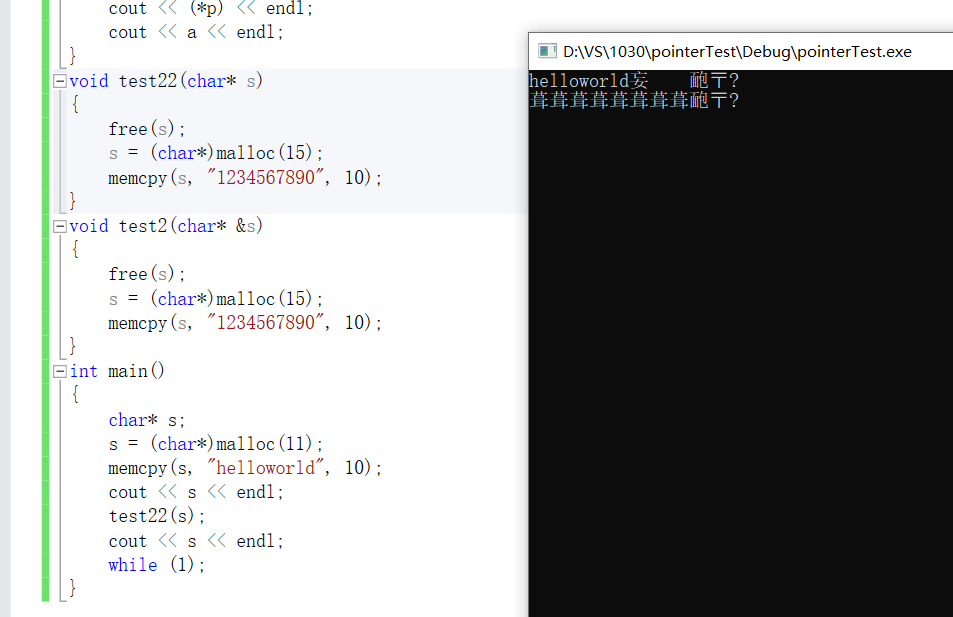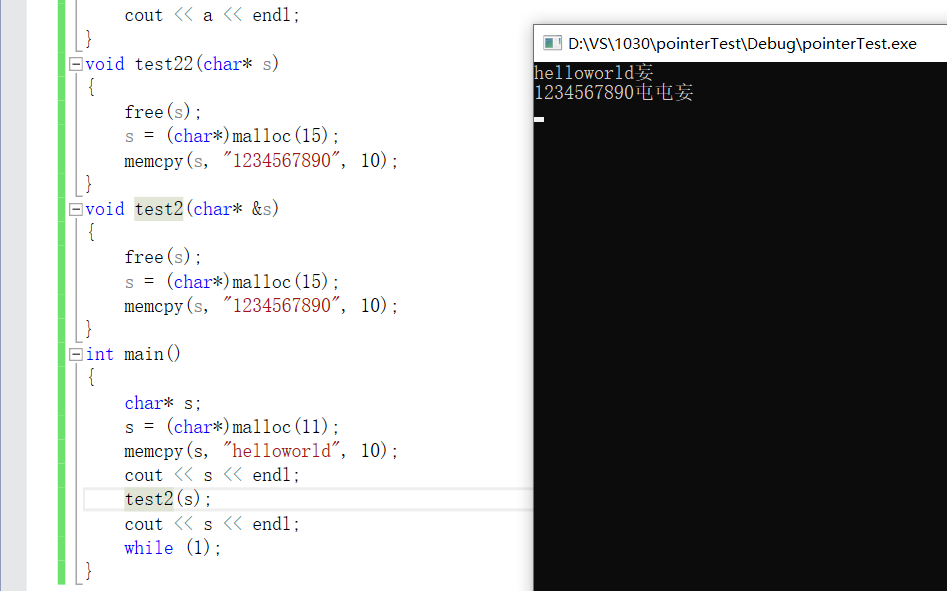Windows下MinGW与MSVC2015关于char指针的区别
话不多说,直接上代码。
#include<iostream>
#include<string.h>
#include<stdlib.h>
using namespace std;
void test11(int* p)
{
(*p) = 5;
}
void test1()
{
int a = 6;
int* p = &a;
cout << (*p) << endl;
cout << a << endl;
test11(p);
cout << (*p) << endl;
cout << a << endl;
}
void test22(char* s)
{
free(s);
s = (char*)malloc(15);
memcpy(s, "1234567890", 10);
}
void test2(char* &s)
{
free(s);
s = (char*)malloc(15);
memcpy(s, "1234567890", 10);
}
int main()
{
char* s;
s = (char*)malloc(11);
memcpy(s, "helloworld", 10);
cout << s << endl;
test22(s);
cout << s << endl;
while (1);
}
关于整形指针的调用(不涉及空间的重新分配),两个编译器并没有明显的区别。
但是关于char* 指针,运行结果就截然不同。
下图为mingw下的运行结果:

下图为msvc下test22()的运行结果。

下图为msvc下test2()的运行结果。

void test22_equal(char* s)
{
char* str = s;
free(str);
str = (char*)malloc(15);
memcpy(str, "1234567890", 10);
}
运行结果的差异,推测代码的实际效果如上所示。
只是普通的char*指针,msvc自动优化成了一个类似局部变量的效果,所以test22()里面可以释放掉main里面的s,但是不能再重新为其分配空间。



 浙公网安备 33010602011771号
浙公网安备 33010602011771号